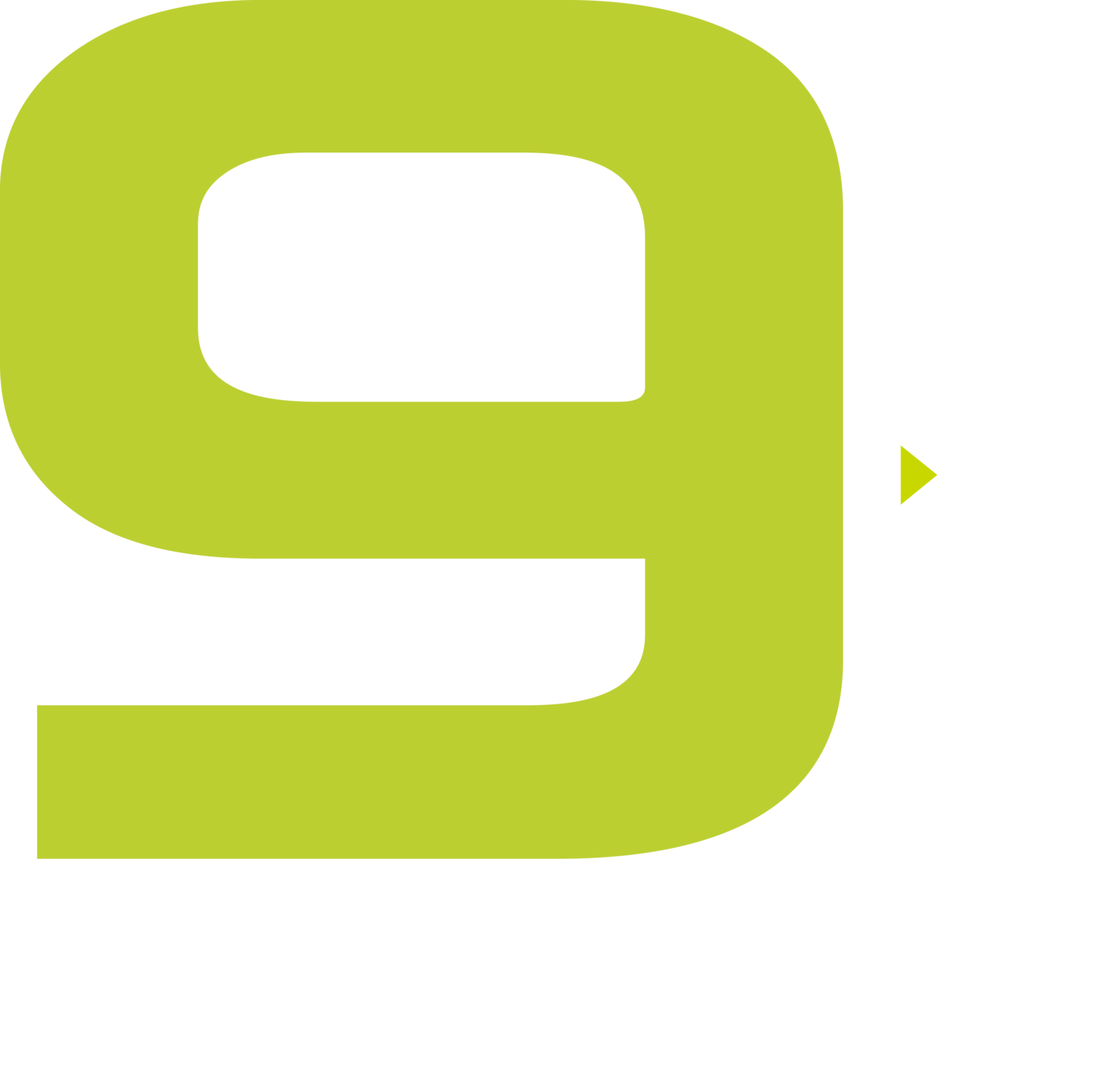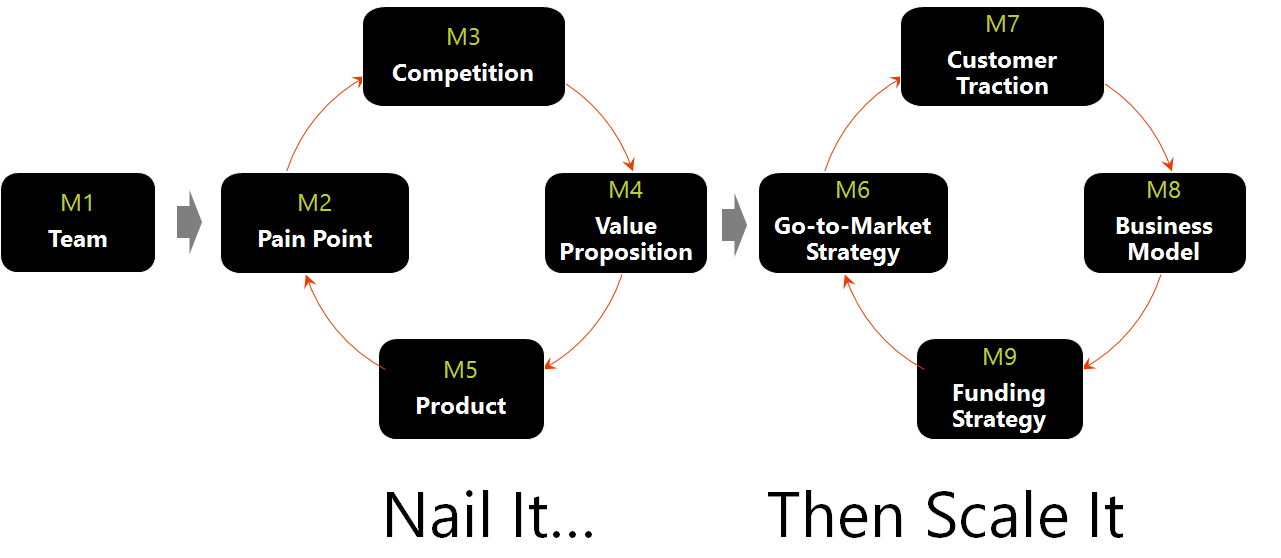In the last blog, we introduced the 9Mile Innovation Framework. Over the next few weeks / months, we’ll elaborate on each one of the milestones constituting this framework. Of course, we’d love your feedback – good, bad, ugly – as we share our thinking.
As any investor or experienced entrepreneur will tell you, it all begins with the team. A great team is a necessary (though not sufficient) condition for entrepreneurial success. That implies that you can have a great team and not have a successful business, however you'll likely never see a successful business that didn't have a great team at the helm.
While there are innumerable ways to slice this pie, at 9Mile Labs, we think of the team in 3 dimensions: Completeness, Chemistry and Competence.
We think of a complete team comprising of 3 roles - hacker, hustler and visionary. Just to be clear, these are 3 roles, not 3 people. The 3 roles could be fulfilled by 2 people or 5 people. The hacker is the person(s) on the team who can write code and build product. The assumption is that this person is not just a full-stack developer (UX/UI, data, back-end) but can also function at different levels (architect, customer interaction, coder, project manager). The hustler sells. The hustler builds relationships, knows how to be empathetic towards customers, listens well and is great at serving as an advocate for the customer. The visionary is the person who probably came up with the original idea and is likely the key product and design expert on the team. In many ways, the visionary is the soul of the team, has the conviction to not just pursue the idea relentlessly, but also owns the mandate to pivot when necessary.
Chemistry is alignment of the core values and vision of the business among the co-founders. One of the workshop leaders at 9Mile Labs – Lindsay Andreotti – describes vision as the compelling description of where the business wants to go and values as the guiding principles for the business. A great positive marker for team chemistry is if the team has successfully worked together, especially in a high-pressure environment such as a startup. It is important for co-founders to know that they can have an impassioned argument and then go get beers later; articulating your deeply-held convictions, yet knowing that winning the argument is subordinate to the success of the business is critical. If everyone agrees with each other all the time, the team is probably not pushing the limits of its intellectual potential far enough, or else the team is not diverse enough to bring a broad set of perspectives to the table. Politics or hidden agendas, if they exist in an early-stage startup, are a sign of misaligned incentives and a sure-fire indicator of trouble.
Competence is the idea that no matter what the skills of the co-founders, they think of themselves as the being the best in the world. They seek excellence in what they do and always maintain the perspective of competing globally, not merely locally or regionally. This translates into not just their own performance, but also into hiring and firing decisions as the team grows.
Entrepreneurial Aptitude is one quality that has been the hardest to pinpoint, has the element of “we’ll know it when we see it,” and is perhaps the greatest indicator of success. Entrepreneurial aptitude is a composite of many traits we have observed in successful entrepreneurs, including focus, self-awareness, grit, curiosity, a self-starter attitude, ability to deal with ambiguity and a knack for accomplishing a lot with very little. These entrepreneurs also have the ability to constantly learn, create and apply new rules very quickly as they go through experiences. We find that entrepreneurial aptitude is incredibly hard to measure with the standard evaluation mechanisms such as resumes, profiles, questionnaires or even interviews. We believe the only way to measure it is to watch people operate in the real world. At 9Mile Labs, we have designed a set of real-world exercises in our accelerator selection process to provide us a glimpse into this aspect of the team, we’ll share more as we learn more.
Based on the above, we have devised a simple rubric for helping entrepreneurs evaluate the quality of their team. If the leadership team of hustler, hacker & visionary is not in place, we assign it the color red or highest risk. We believe however, that the existence of a complete team only mitigates some level of risk, even with the chemistry and competence on the team, hence it gets a “yellow” rating. The team has achieved a green only if the founders have a proven ability to bring on board the best and the brightest people to support their vision. Most people can attract someone into Google or Facebook by offering great pay and benefits. However, as a startup, the only currency the founders have is equity and more important, their conviction and passion around the startup. Once a co-founding team can inspire others with their vision and dream, that’s when the team turns “green.” This capability is also a test for the selling abilities of a CEO. You see, the CEO is always selling, to customers, investors and to potential recruits. If you can’t sell great people to come on board your company, it’s only going to get harder.
In our next post, we'll elaborate on how we coach our teams to think about understanding the pain point of their target customers.
9Mile Labs is a leading Enterprise / B2B high-tech accelerator based in Seattle. 9Mile Labs celebrates the graduation of its fifth cohort on Mar 3, 9:30am; register as our guest with promo code “GOLD” at http://m9.9MileLabs.com!
The accelerator is currently accepting applications for the upcoming program (beginning in July, 2016) at http://apply.9MileLabs.com.




